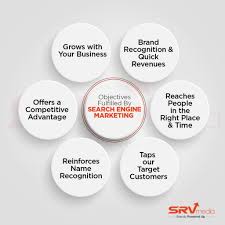The Importance of a Marketing Plan
A marketing plan is a crucial tool for any business looking to achieve its goals and objectives. It serves as a roadmap that outlines the strategies and tactics that will be used to promote products or services to target customers. Here are some key reasons why having a solid marketing plan is essential:
Strategic Direction
By developing a marketing plan, businesses can define their target market, identify their competitors, and outline the strategies that will help them reach their desired audience. This provides clarity and direction for the marketing efforts, ensuring that resources are allocated effectively.
Goal Setting
A marketing plan allows businesses to set specific, measurable, achievable, relevant, and time-bound (SMART) goals. These goals serve as benchmarks for success and help in tracking the progress of marketing campaigns. They provide a clear focus for the marketing team and ensure that efforts are aligned with overall business objectives.
Budget Allocation
With a well-defined marketing plan, businesses can allocate their budget efficiently across different marketing channels. By prioritising initiatives based on expected returns and cost-effectiveness, companies can maximise the impact of their marketing spend and achieve better ROI.
Risk Management
A comprehensive marketing plan includes contingency measures to address potential risks and challenges that may arise during campaign execution. By anticipating obstacles in advance, businesses can proactively mitigate risks and adapt their strategies to changing market conditions.
Evaluation and Improvement
One of the key benefits of a marketing plan is that it provides a framework for evaluating the success of marketing initiatives. By monitoring key performance indicators (KPIs) outlined in the plan, businesses can measure the effectiveness of their strategies and make data-driven decisions for future improvements.
In conclusion, a well-crafted marketing plan is an indispensable tool for businesses seeking to drive growth, build brand awareness, and engage with customers effectively. By investing time and resources in developing a strategic roadmap for marketing activities, companies can position themselves for long-term success in today’s competitive marketplace.
5 Essential Tips for Crafting an Effective Marketing Plan
- Clearly define your target audience to tailor your marketing efforts effectively.
- Set specific and measurable goals to track the success of your marketing plan.
- Allocate your budget wisely across different marketing channels for maximum impact.
- Regularly review and adjust your marketing strategies based on performance data and market trends.
- Ensure consistency in branding and messaging across all marketing materials for a cohesive brand image.
Clearly define your target audience to tailor your marketing efforts effectively.
Clearly defining your target audience is a fundamental aspect of a successful marketing plan. By understanding who your ideal customers are, you can tailor your marketing efforts to resonate with their needs, preferences, and behaviours. This focused approach allows you to craft messages and strategies that are more likely to capture the attention of your target audience, leading to higher engagement and conversion rates. Identifying your target audience enables you to allocate resources efficiently and maximise the impact of your marketing campaigns, ultimately driving better results for your business.
Set specific and measurable goals to track the success of your marketing plan.
Setting specific and measurable goals is a fundamental tip in developing a successful marketing plan. By clearly defining objectives that are quantifiable and time-bound, businesses can effectively track the progress and impact of their marketing strategies. Measurable goals provide a benchmark for success, allowing companies to evaluate the performance of their marketing initiatives against predetermined criteria. This approach not only helps in identifying areas of improvement but also enables businesses to make informed decisions based on concrete data, ultimately enhancing the overall effectiveness of their marketing efforts.
Allocate your budget wisely across different marketing channels for maximum impact.
Allocating your budget wisely across different marketing channels is a crucial tip for maximising the impact of your marketing plan. By diversifying your budget and investing in a mix of channels such as digital advertising, social media, content marketing, and traditional advertising, you can reach a wider audience and engage with potential customers across various touchpoints. This strategic approach not only helps in maximising the effectiveness of your marketing efforts but also allows you to test and refine different strategies to identify the most successful channels for your business objectives.
Regularly review and adjust your marketing strategies based on performance data and market trends.
It is essential for businesses to regularly review and adjust their marketing strategies based on performance data and market trends. By analysing key metrics and monitoring market dynamics, companies can identify areas for improvement, capitalise on emerging opportunities, and stay ahead of competitors. This proactive approach enables businesses to adapt to changing consumer preferences, refine their messaging, and allocate resources more effectively. Continuous evaluation and adjustment of marketing strategies ensure that businesses remain agile, responsive, and aligned with the evolving needs of their target audience.
Ensure consistency in branding and messaging across all marketing materials for a cohesive brand image.
Ensuring consistency in branding and messaging across all marketing materials is paramount for creating a cohesive brand image. By maintaining uniformity in design elements, tone of voice, and key messages, businesses can establish a strong brand identity that resonates with their target audience. Consistency builds trust and recognition, reinforcing the brand’s values and positioning in the minds of consumers. It also helps to streamline communication efforts and create a seamless customer experience across various touchpoints, ultimately strengthening brand loyalty and driving long-term success.



